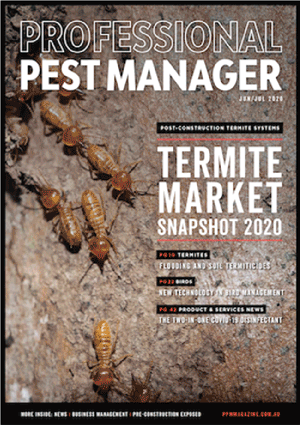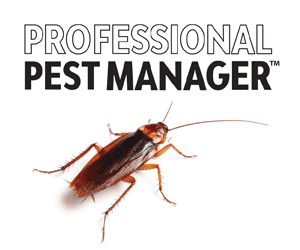Vasili Tsoutouras provides an update on AEPMA’s official reaction to the COVID-19 pandemic.
Thank you for all your emails and calls to our national office in recent weeks regarding COVID-19 and how it impacts our pest control industry. As you may be aware, AEPMA has made a representation to State, Territory and Federal Jurisdictions to allow pest control to continue as an essential service.
However, to date we have not received clarification on this matter, as there is currently no formal process for awarding ‘essential’ status. At this point in time, all state and territory governments have emphasised to AEPMA the fact that there is no restriction on pest control operations in Australia. As always, we will keep members updated of any changes as they arise.
We have created a position statement (below) on the importance of professional pest control.
The professional pest control industry is an essential service that is responsible for the protection of public health, food and property. The importance of these services has never been of greater concern than now, with the spread of the Severe Acute Respiratory Syndrome Coronavirus 2 (SARS-CoV-2) the causative virus of COVID-19 disease.
Pests are widely reported in the spread of diseases such as West Nile virus, Lyme disease, salmonellosis, hantavirus, encephalitis and more.
Cockroach and rodent allergens trigger asthma attacks in children; rodents contaminate or consume about 20% of the world’s food supply; and bed bugs can cause allergic reactions.
Looking specifically at the current COVID-19 situation, recent structural and biochemical studies of the SARS-CoV-2 virus have identified two notable genomic features (Andersen, K. G. et al, 2020).1 They advise that the virus has a polybasic furin cleavage site with O-linked glycans. This is important since it has a role in determining viral infectivity and the host range of SARS-CoV-2. The authors report, “it is likely that SARS-CoV-2-like viruses… will be discovered in other species.”
It appears that SARS-CoV-2 most probably originated from mutation within human hosts during late 2019, following zoonotic transfer of a SARS- CoV-2 like ancestor from another species, most likely a pangolin.
Whilst there is no evidence that the current human SARS-CoV-2 virus can infect other animal species, it is something that cannot be conclusively ignored. More possible is that a pest species could transport the SARS-CoV-2 virus on their body from an infected surface.
Researchers from Princeton, UCLA and the US National Institutes of Health have found that the virus can survive between 2-9 days on surfaces such as stainless steel, wood, paper, plastics and glass. (Kampf, G. et al, 2020).2 Since we know that pests such as rodents and cockroaches do transport various viral diseases and, given the persistence of the SARS-CoV-2 on surfaces, it is prudent that we maintain vigilance and ensure premises are routinely protected from infestations by insect and rodent pests. The importance of the pest control industry to the nation as an essential service cannot be understated.
As our business environment seems to change on a daily basis, it is also important that we check in on our employees and friends regarding their mental health and any concerns they may have. It’s important during these times to ask, “Are you ok?”
On behalf of AEPMA I would like to thank all our members, the individuals who have assisted our efforts, the team in our national office, and the greater pest control community for their continued support.
Stay safe,
Vasili Tsoutouras, President, AEPMA
1 Andersen, K.G., Rambaut, A., Lipkin, W.I. et al. The proximal origin of SARS- CoV-2. Nature Medicine (2020).
2 Kampf, G. et al. Persistence of coronaviruses on inanimate surfaces and their inactivation with biocidal agents. Journal of Hospital Infection, Volume 104, Issue 3, 246 – 251 (2020).



